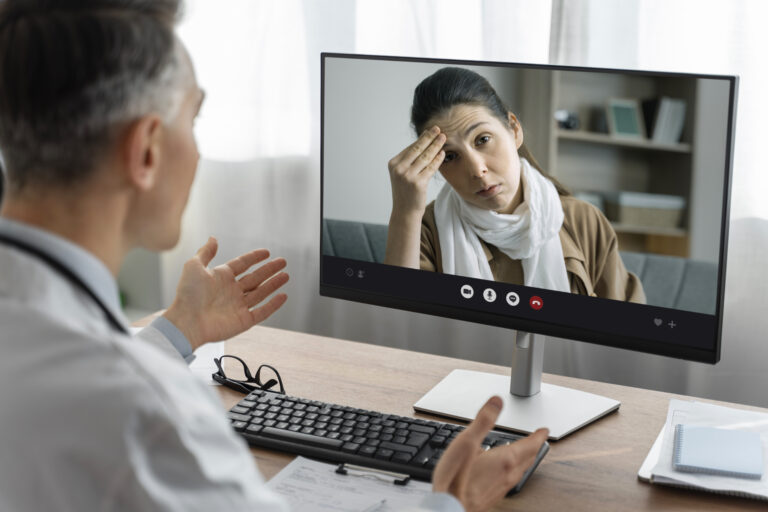
Contents
The healthcare industry has seen tremendous advancements over the past few years, driven largely by the integration of digital technology. Among the many innovations, the ability to obtain oncology second opinions online has emerged as a significant benefit for cancer patients. This development is especially pertinent in India, where access to specialized medical care can be limited. This article delves into the benefits of online second opinion in India, their importance in the Indian healthcare landscape, and how they are revolutionizing cancer care.
The Importance of an Oncology Second Opinion
An oncology second opinion involves seeking an additional evaluation of a cancer diagnosis and treatment plan from another oncologist or team of specialists. This process is crucial for several reasons:
- Diagnostic Confirmation: Cancer diagnoses often involve complex tests and imaging studies. A second opinion can help confirm the accuracy of the initial diagnosis, ensuring that the patient receives the correct treatment.
- Exploring Treatment Options: Oncology is a rapidly advancing field. A second opinion can provide patients with information about the latest treatments, clinical trials, and emerging therapies that may not have been considered initially.
- Patient Reassurance: Receiving a cancer diagnosis can be overwhelming. A second opinion offers peace of mind by confirming the diagnosis and treatment plan, helping patients feel more confident in their healthcare decisions.
- Avoiding Unnecessary Treatments: Sometimes, a second opinion can reveal that a less aggressive treatment approach could be equally effective, sparing patients from unnecessary side effects and procedures.
The Rise of Online Second Opinions in Oncology
The traditional process of obtaining a second opinion often required patients to travel to different cities or even countries, incurring significant time and financial costs. However, the rise of online platforms has made it easier for patients to access second opinions from top oncologists without leaving their homes. Here are some key benefits of obtaining an oncology second opinion online:
- Accessibility: Online platforms break down geographical barriers, allowing patients from remote or underserved areas to access world-class specialists.
- Convenience: Patients can schedule consultations at their convenience, and medical records can be shared electronically, streamlining the process.
- Cost-Effective: Online consultations can be more affordable than in-person visits, especially when considering the costs of travel and accommodation.
- Speed: Quick access to a second opinion can expedite the treatment process, which is critical in cancer care where timely interventions can significantly impact outcomes.
The Relevance of Online Second Opinions in India
India faces unique challenges in healthcare delivery, particularly in the field of oncology. The scarcity of specialized cancer care in rural and semi-urban areas, combined with the high costs associated with treatment, makes accessing quality care difficult for many patients. Online second opinions offer a viable solution to these challenges:
- Bridging the Gap in Specialist Care: India has a limited number of oncologists, and many of them are concentrated in major urban centers. Online platforms allow patients from all over the country to consult with leading oncologists, democratizing access to expert care.
- Timely Diagnoses and Interventions: Quick access to expert opinions can lead to timely diagnoses and interventions, crucial for improving cancer outcomes.
- Empowering Patients: By providing comprehensive information about their condition and treatment options, online second opinions empower patients to make informed decisions about their care.
- Supporting Local Healthcare Providers: Online second opinions can complement the care provided by local physicians, offering additional insights and recommendations that can enhance the overall treatment strategy.
Case Studies Highlighting the Impact
Consider the case of a patient diagnosed with breast cancer in a small town in India. The local oncologist recommended a mastectomy followed by chemotherapy. Seeking an online second opinion from a leading cancer center revealed an alternative approach involving breast-conserving surgery and targeted therapy, which was less invasive and equally effective. This not only improved the patient’s quality of life but also provided her with a treatment plan tailored to her specific condition.
In another instance, a patient with a rare form of lymphoma received an online second opinion from an international specialist. The consultation introduced the patient to a clinical trial that was not available in India, offering a promising new treatment option that significantly improved the patient’s prognosis.
Challenges and Solutions
While the benefits of online second opinions are substantial, there are challenges that need to be addressed:
- Digital Literacy: Not all patients are familiar with using digital platforms. Educational initiatives and user-friendly interfaces can help mitigate this issue.
- Data Privacy: Ensuring the confidentiality and security of medical records is paramount. Robust cybersecurity measures must be in place to protect patient information.
- Regulatory Hurdles: Navigating the regulatory landscape for telemedicine can be complex. Clear guidelines and policies can facilitate smoother implementation of online second opinion services.
Future Prospects
The future of online second opinions in oncology looks promising. As technology continues to evolve, these platforms will become even more sophisticated, incorporating artificial intelligence and machine learning to enhance diagnostic accuracy and treatment recommendations. Furthermore, as telemedicine becomes more integrated into the healthcare system, we can expect wider acceptance and utilization of online second opinions.
In India, continued investment in digital infrastructure and healthcare technology will be crucial. Public-private partnerships can play a significant role in expanding the reach of online second opinion services, ensuring that more patients benefit from this innovation.
Conclusion
The advent of online second opinions in oncology represents a significant advancement in cancer care, offering numerous benefits such as improved access to specialists, timely and accurate diagnoses, and personalized treatment plans. In India, where healthcare resources are often limited, these services are particularly valuable. By leveraging technology, we can bridge the gap in cancer care, ensuring that every patient has the opportunity to receive the best possible treatment, regardless of their location. As we move forward, it is essential to address the challenges and continue to innovate, making online second opinions an integral part of the cancer care continuum.